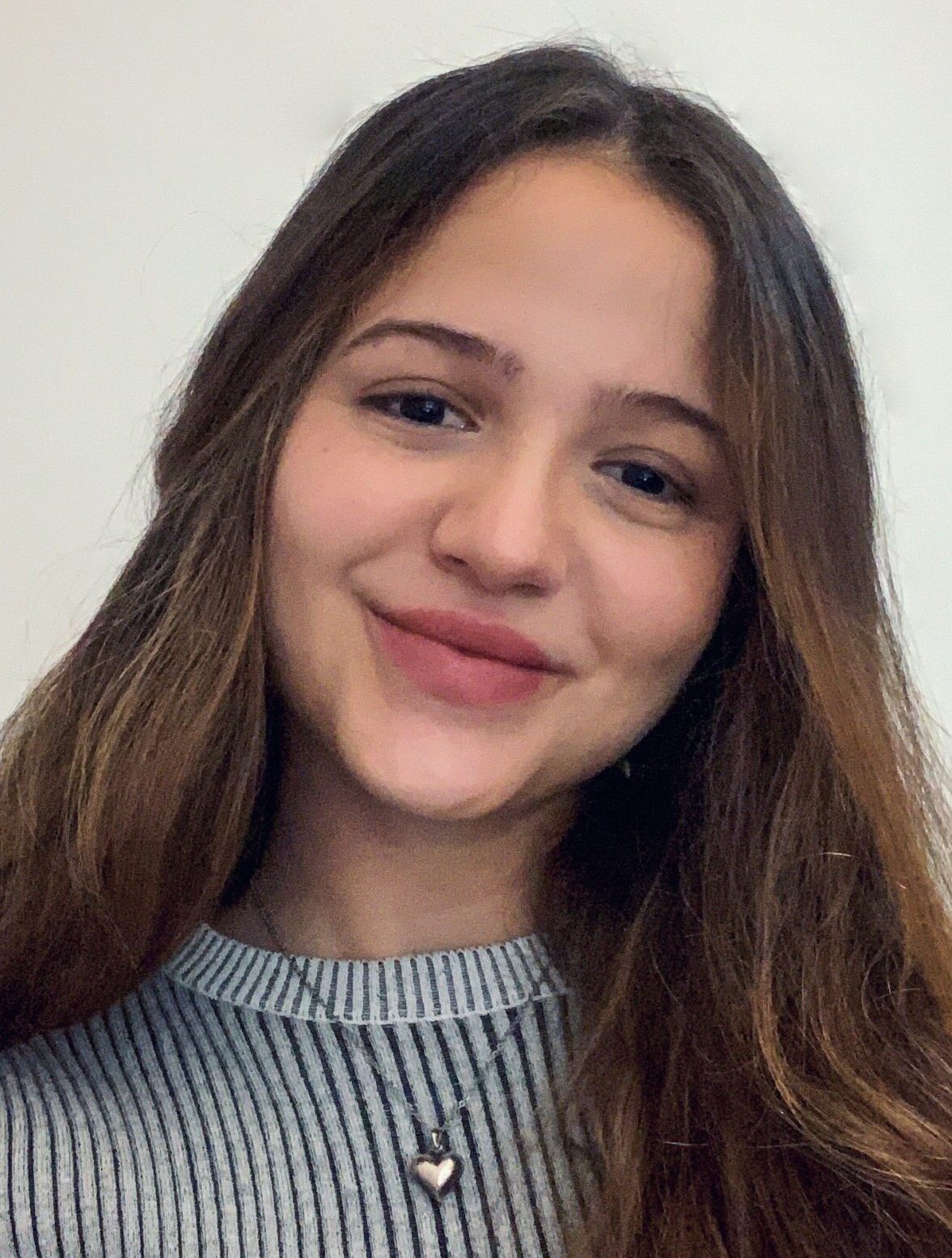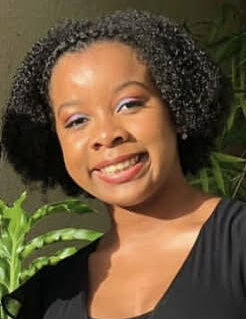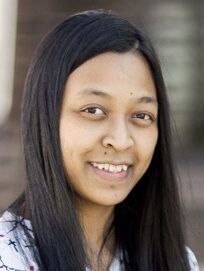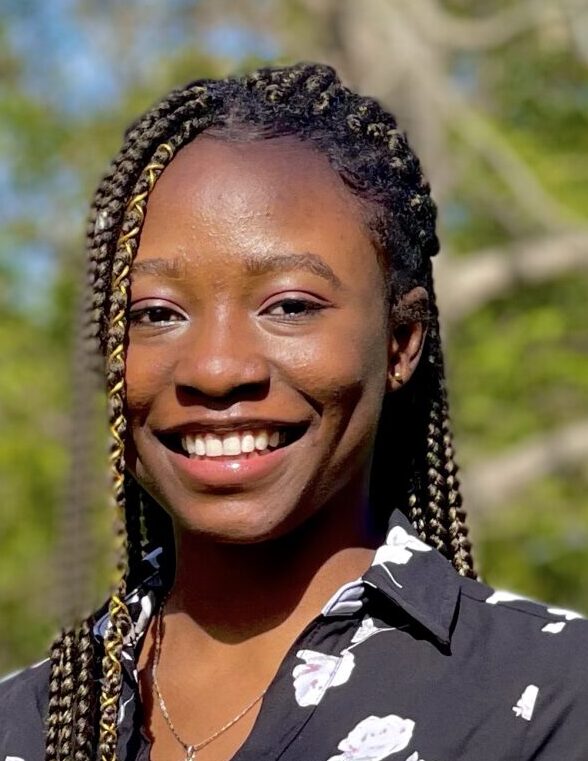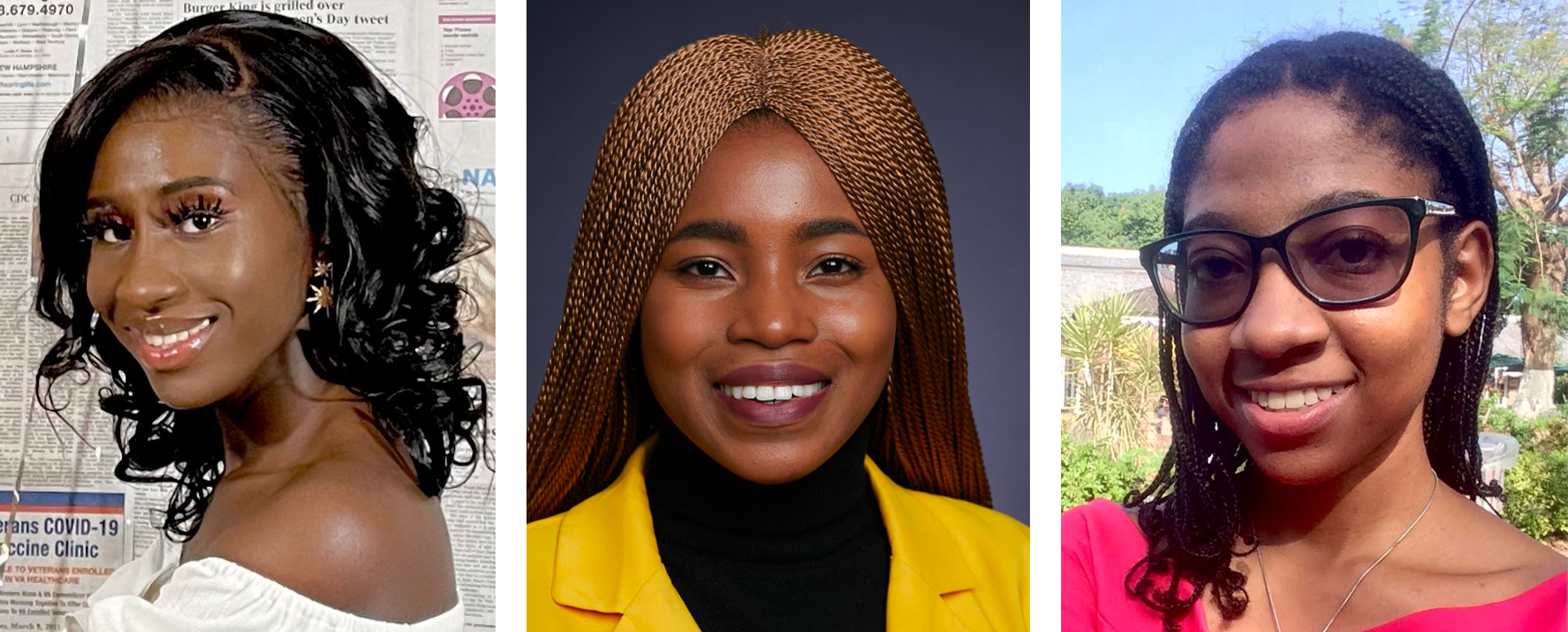A highly successful Summer Research Fellowship (SRF) program was launched in 2021 and will be offered again in 2022 with a March 15 deadline. This innovative ASP-sponsored program offers a 2.5-month stipend to enable students to engage in research experiences under a mentor in the natural product sciences.
The Diversity, Equity, and Inclusion Committee (DEI) was tasked with identifying and addressing issues of diversity within the ASP. One of the most critical challenges facing STEM fields in the US, which is reflected within the ASP, is a lack of racial and ethnic representation among our membership, leadership, award recipients, and meeting speakers. Structural and systemic inequities, such as inequitable access to education, housing, jobs, government programs and benefits, and treatment under the criminal justice system, have served as barriers to Black, Indigenous and Latinx (BIL) students that wish to advance through the scientific training pipeline. The data show that there is a significant loss of BIL students who advance from undergraduate to graduate-level studies. This has contributed to fewer BIL faculty, senior scientists and mentors.
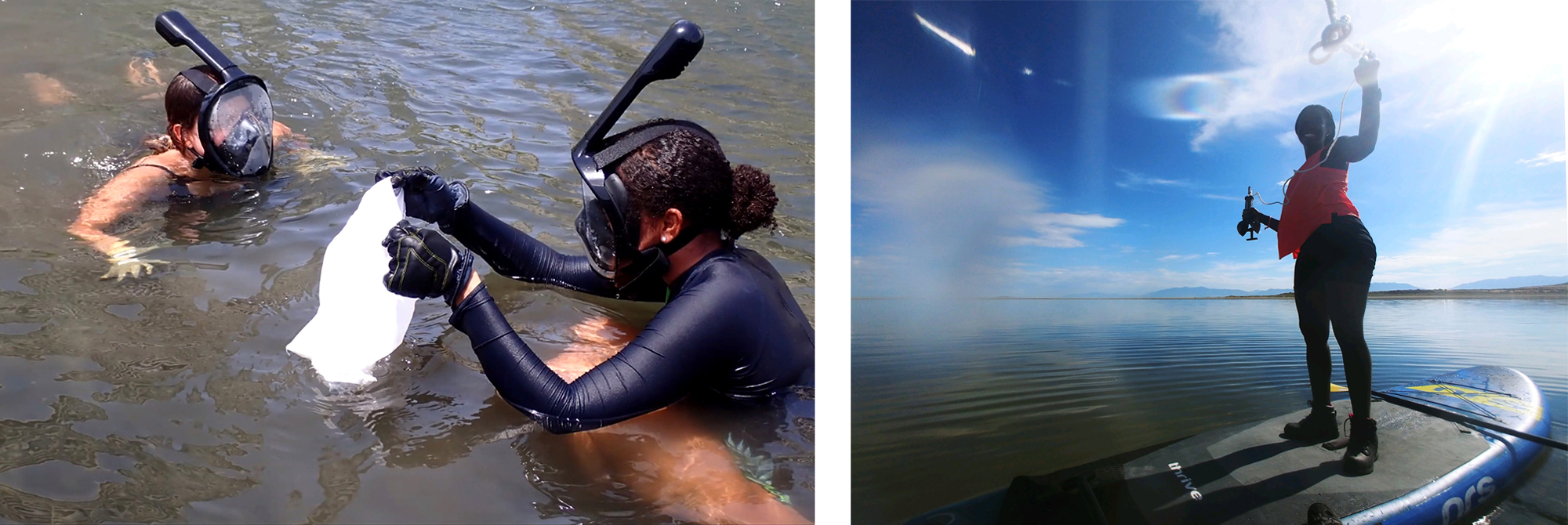
LEFT: Victoria Casimir collecting water samples for cyanobacteria in Puerto Rico. RIGHT: Ama Boamah’s first time out in the field in the Great Salt Lake in Utah collecting samples for microbial isolations
One inequity that is specific to the physical sciences is the opportunity to engage in volunteer research in a laboratory. Authentic research experiences are a critical currency for graduate school applications in these fields. Students develop research, writing, and presentation skills, and also establish important relationships with mentors who can provide advice and letters of recommendation. Importantly, they give applicants competitive advantage in the review process and act as a major entryway to a graduate education. Indeed, it is common for committees making admissions decisions for graduate schools in the STEM fields to consider only those applicants who have had sustained participation in undergraduate research.
As a first step to correct for a misrepresentation of BIL students in our field, the ASP DEI Committee, Executive Committee, ASP Foundation, and ASP Fellows collaborated to develop and fund the SRF program for undergraduates. It is designed to recruit BIL students to the natural product sciences and enable their transition from undergraduate education to graduate school.
The ASP SRF program offers a 2.5-month stipend to enable students to engage in research experiences under a mentor in the natural product sciences. The first cohort of students was recruited in the summer of 2021 and included seven trainees from across the country (see table). The student fellows engaged in twelve weekly cohort training meetings led by Dr. Lesley-Ann Giddings (Smith College). As part of this training, several academic faculty, government, and industry leaders led weekly seminars designed to equip undergraduate trainees with a diverse array of skill sets to prepare them for their laboratory experiences, graduate school and/or professional careers in the natural product sciences. These seminars included instruction for advanced science communication, exposure to careers in natural products, and development of skills needed to be successful in a graduate program. To conclude their summer research experience, each student presented their projects to an international audience at the August 12, 2021 ASP webinar.
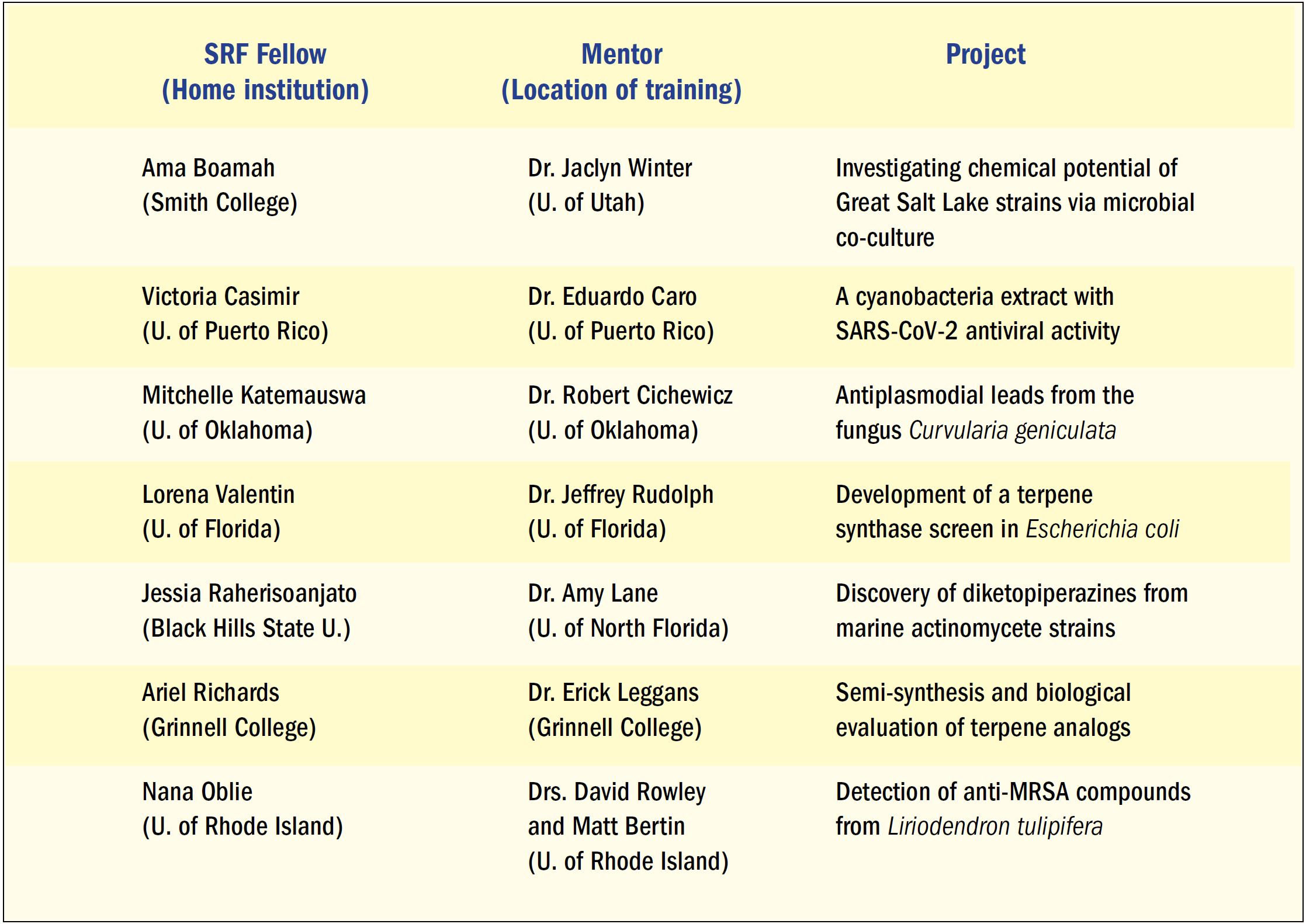
Student perspectives on their experiences in the ASP SRF program can be viewed here. The students who participated describe the program as being highly impactful for them:
|
“I applied to this program because I had been interested in natural products for a while and I had also been attending ASP webinars, and I just thought this was a great opportunity for me to get research in that area, and I’m so glad that I applied…” |
|
“My most meaningful memory from this program was when I was told that I could be a part of the research group post-program, so that was really great.” |
|
“This program impacted me…I got to do hands-on experiments, and so I found out this is something I really like and I want to do in the future, go to grad school for and make a career out of it.” |
|
“It has given me a voice. Talking about my research this summer at a poster really made me feel like a researcher.” |
|
left to right: Ama Boamah |
ASP is currently accepting applications for the second year of the ASP SRF program through March 15 and is aiming to accept five students into the summer 2022 cohort. While the ASP DEI Committee is currently pursuing long-term funding for this critical program for 2023 and beyond through grants and industry sponsorship, private donations are welcome and will have an immediate impact on the professional careers of BIL students.
Vol 58 Issue 1
NEWSLETTER STAFF
Edward J. Kennelly, PhD
Editor In Chief
Patricia Carver, MA
Copyediting & Proofreading
Nancy Novick
Design & Production
Gordon Cragg, PhD
Mario Figueroa, PhD
Joshua Kellogg, PhD
Michael Mullowney, PhD
Guido Pauli, PhD
Patricia Van Skaik, MA, MLS
Jaclyn Winter, PhD
ASP Newsletter Committee
Contribution deadlines
Spring: Feb. 15; Summer: May 15 Fall: Aug. 15; Winter:Nov. 15
Please send information to
Edward J. Kennelly, PhD Editor In Chief,
ASP Newsletter
Department of Biological Sciences
Lehman College, CUNY
250 Bedford Park Blvd. West Bronx, NY 10468
718-960-1105
asp.newsletter@
lehman.cuny.edu
ISSN 2377-8520 (print) ISSN 2377-8547 (online)

